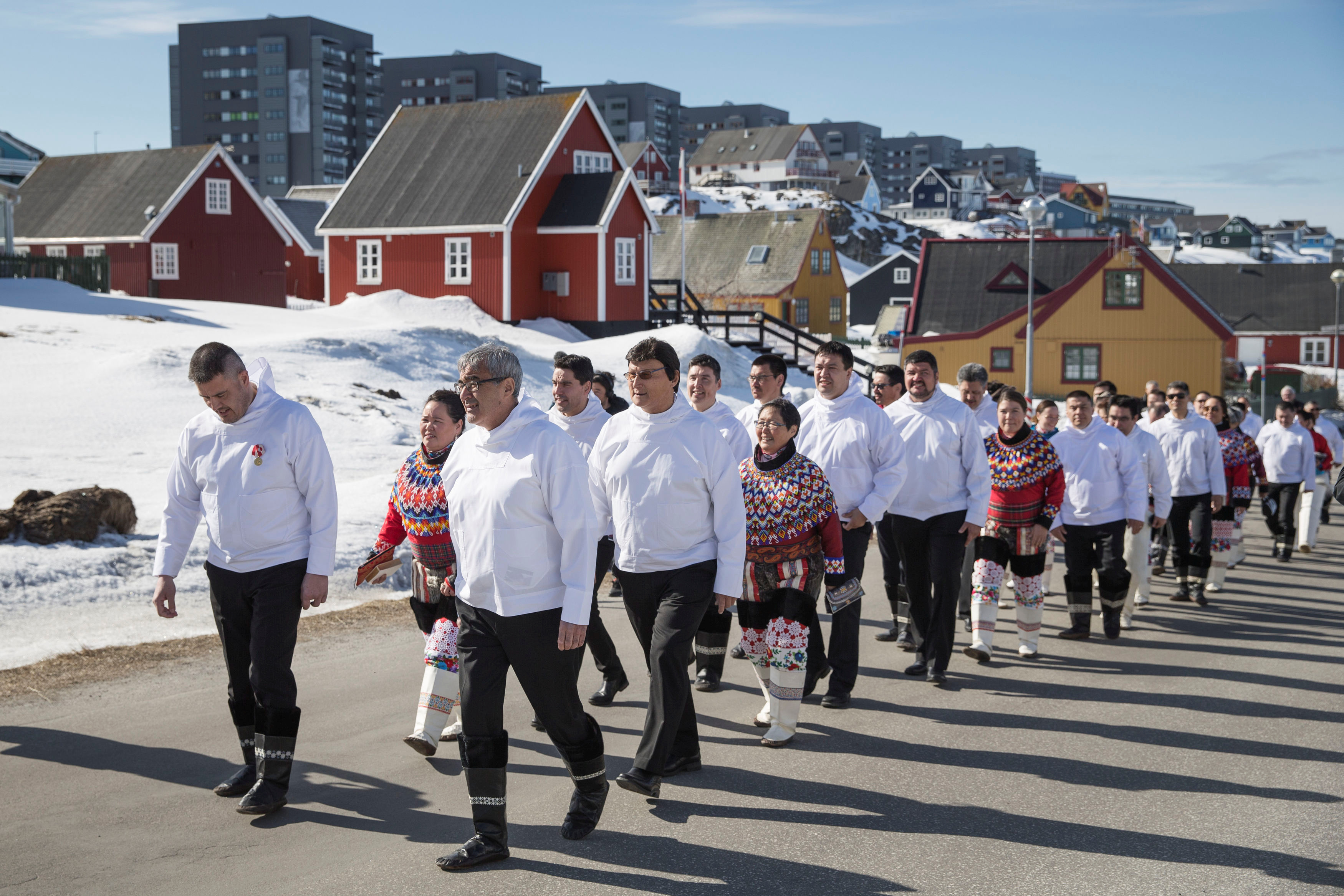Greenland premier seeks a new majority after populists leave government in row over Danish investment
Political allies part ways amid accusations that premier lied about plans to accept Danish investment in airport construction.

Greenlandic premier Kim Kielsen is scrambling to assembly a majority in the national assembly before the start of the autumn session on September 28 after losing his majority on Sunday when one of the four parties making up his governing coalition announced it was leaving the government amid accusations they had been lied to about Danish investment in that country’s largest infrastructure project to date.
Partii Naleraq, a populist party formed in 2014 when its leader broke away from Kielsen’s Siumut party, made the decision after learning that the premier was close to inking a deal with the Danish PM today that would see Copenhagen contribute as much as quarter of the 3.5 billion kroner ($540 million) needed for planned improvements of Greenland’s airport infrastructure.
The break was precipitated by a sequence of events that began on Thursday, when members of a legislative committee were reportedly told that no such deal was in the offing. On Friday, however, it was announced that Lars Løkke Rasmussen, the Danish PM, would visit Nuuk today, to discuss Danish involvement in the airport project.
Media reports later emerged suggesting that Kielsen, despite further reported denials to Partii Naleraq leader Hans Enoksen, planned to ink a deal with Rasmussen today.
[Greenland airport project hits unexpected turbulence]
Although Enoksen said the break came as a result of Kielsen “lying to his face” about the purpose of Rasmussen’s visit, Partii Naleraq’s departure from the government comes after a series of disagreements with Kielsen that have emerged since the formation of the coalition after an April 24 election in which Siumut narrowly retained the premiership.
Prior to the defection of Partii Naleraq and its three seats, Kielsen’s coalition held a one-seat majority in the Inatsisartut, the 31-member national assembly. In comments made to Sermitsiaq.AG, a Greenlandic news outlet, and later repeated to other news outlets, Kielsen indicated he will exhaust all efforts to form a new coalition before making a decision about whether to call a new election or seek to govern with a minority coalition.
“The country doesn’t need an election now. That’s not my objective, either. I believe and hope that we can collaborate with other parties in Inatsisartut,” he said.
[Denmark, Greenland and the Faroe Islands: A working relationship]
Kielsen’s most likely option would be to invite Demokraatit into his coalition. The party was a member of a previous government led by Kielsen, and with its six seats, would give Kielsen a larger majority than that held by his previous government. Its leader, Niels Thomsen, has confirmed he has spoken with the premier about joining a new government, and that he is open to papering over Demokraatit’s differences with Siumut to join a coalition and provide the country with “political stability.”
“Our parties have different goals. That complicates matters, but you can come a long way with a pragmatic attitude,” Thomsen told KNR, a news outlet.
Another option would be to invite IA, which, with two seats fewer than Siumut, is the second-largest party in the national assembly. Despite being a traditional rival with Siumut for power, IA has on three previous occasions sat in a coalition with Siumut — most recently between October 2016 and the election in April, as part of a Kielsen-led government.
IA has not been invited to take part in negotiations to form a new coalition, its leader, Sara Olsvig, told KNR. But, she is reportedly willing to speak with Kielsen about again joining a government.